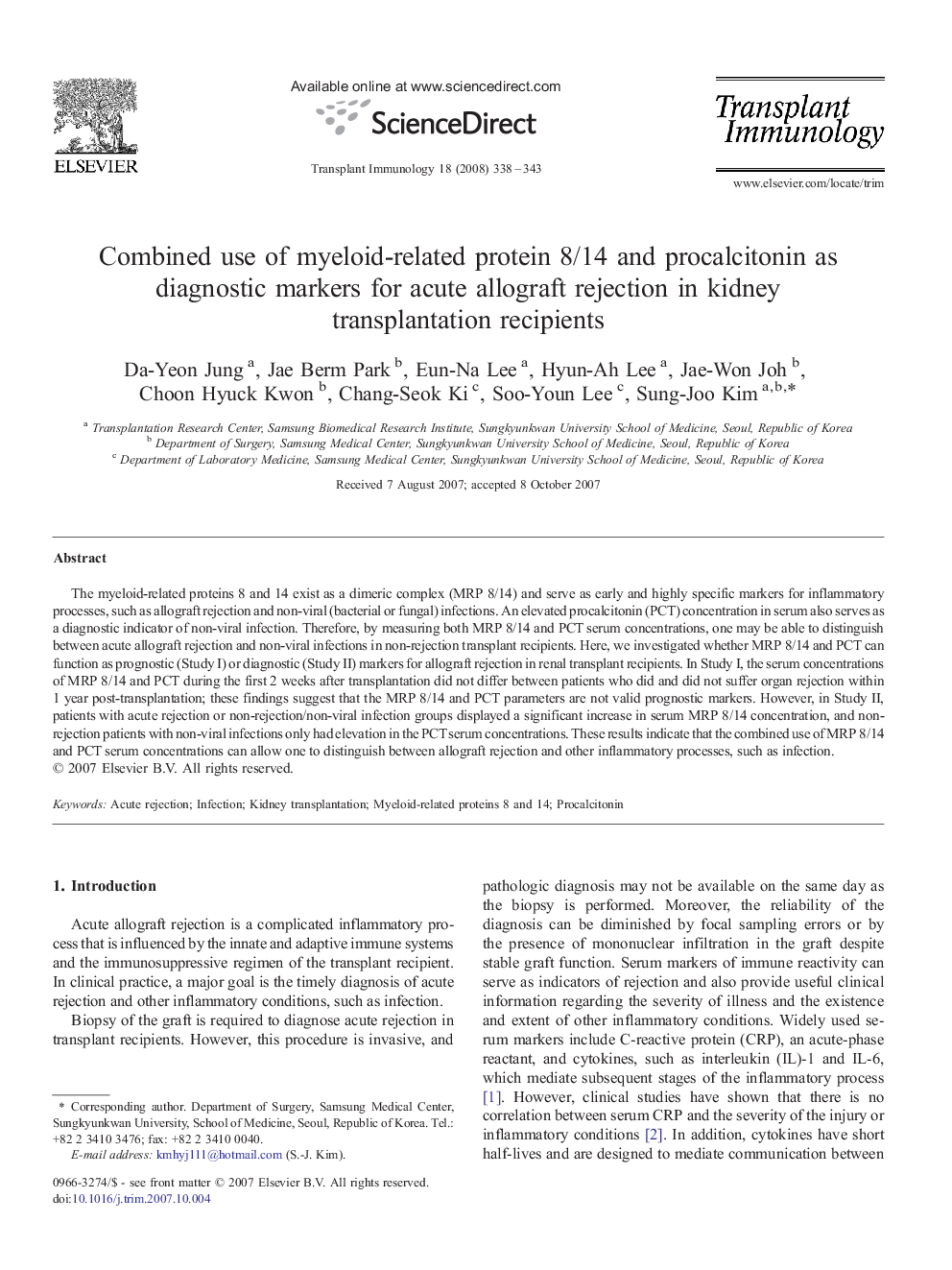| Article ID | Journal | Published Year | Pages | File Type |
|---|---|---|---|---|
| 3392620 | Transplant Immunology | 2008 | 6 Pages |
The myeloid-related proteins 8 and 14 exist as a dimeric complex (MRP 8/14) and serve as early and highly specific markers for inflammatory processes, such as allograft rejection and non-viral (bacterial or fungal) infections. An elevated procalcitonin (PCT) concentration in serum also serves as a diagnostic indicator of non-viral infection. Therefore, by measuring both MRP 8/14 and PCT serum concentrations, one may be able to distinguish between acute allograft rejection and non-viral infections in non-rejection transplant recipients. Here, we investigated whether MRP 8/14 and PCT can function as prognostic (Study I) or diagnostic (Study II) markers for allograft rejection in renal transplant recipients. In Study I, the serum concentrations of MRP 8/14 and PCT during the first 2 weeks after transplantation did not differ between patients who did and did not suffer organ rejection within 1 year post-transplantation; these findings suggest that the MRP 8/14 and PCT parameters are not valid prognostic markers. However, in Study II, patients with acute rejection or non-rejection/non-viral infection groups displayed a significant increase in serum MRP 8/14 concentration, and non-rejection patients with non-viral infections only had elevation in the PCT serum concentrations. These results indicate that the combined use of MRP 8/14 and PCT serum concentrations can allow one to distinguish between allograft rejection and other inflammatory processes, such as infection.
